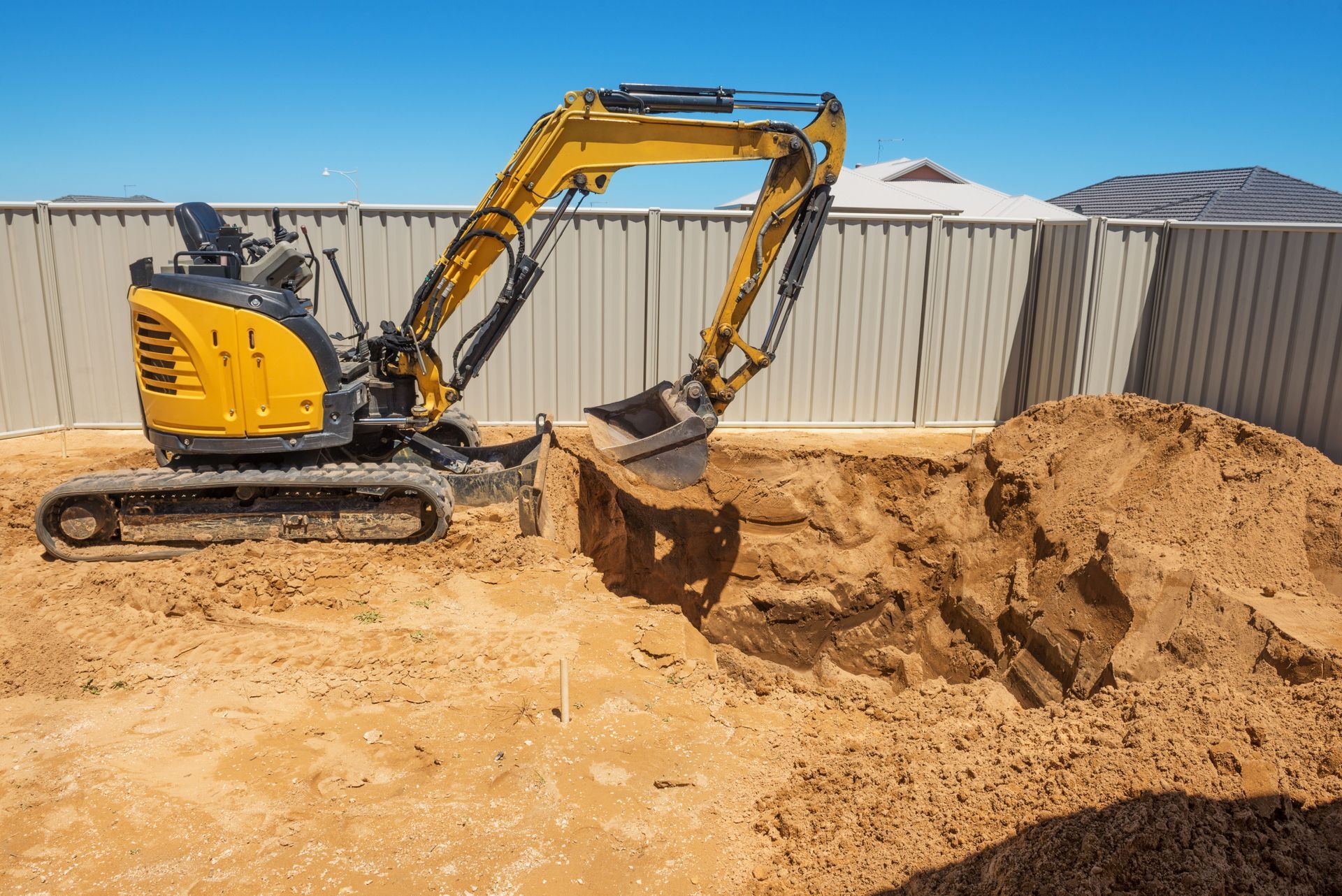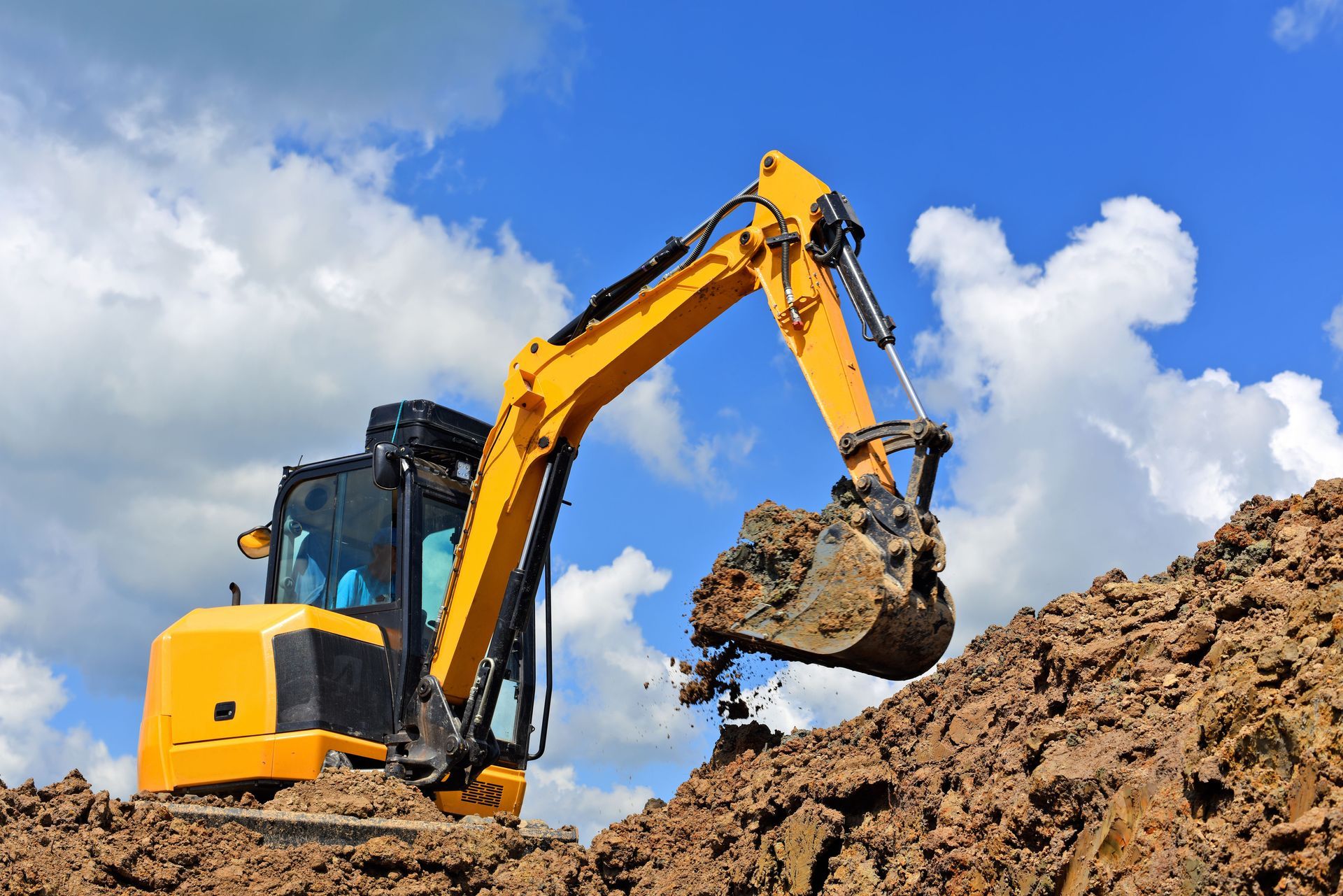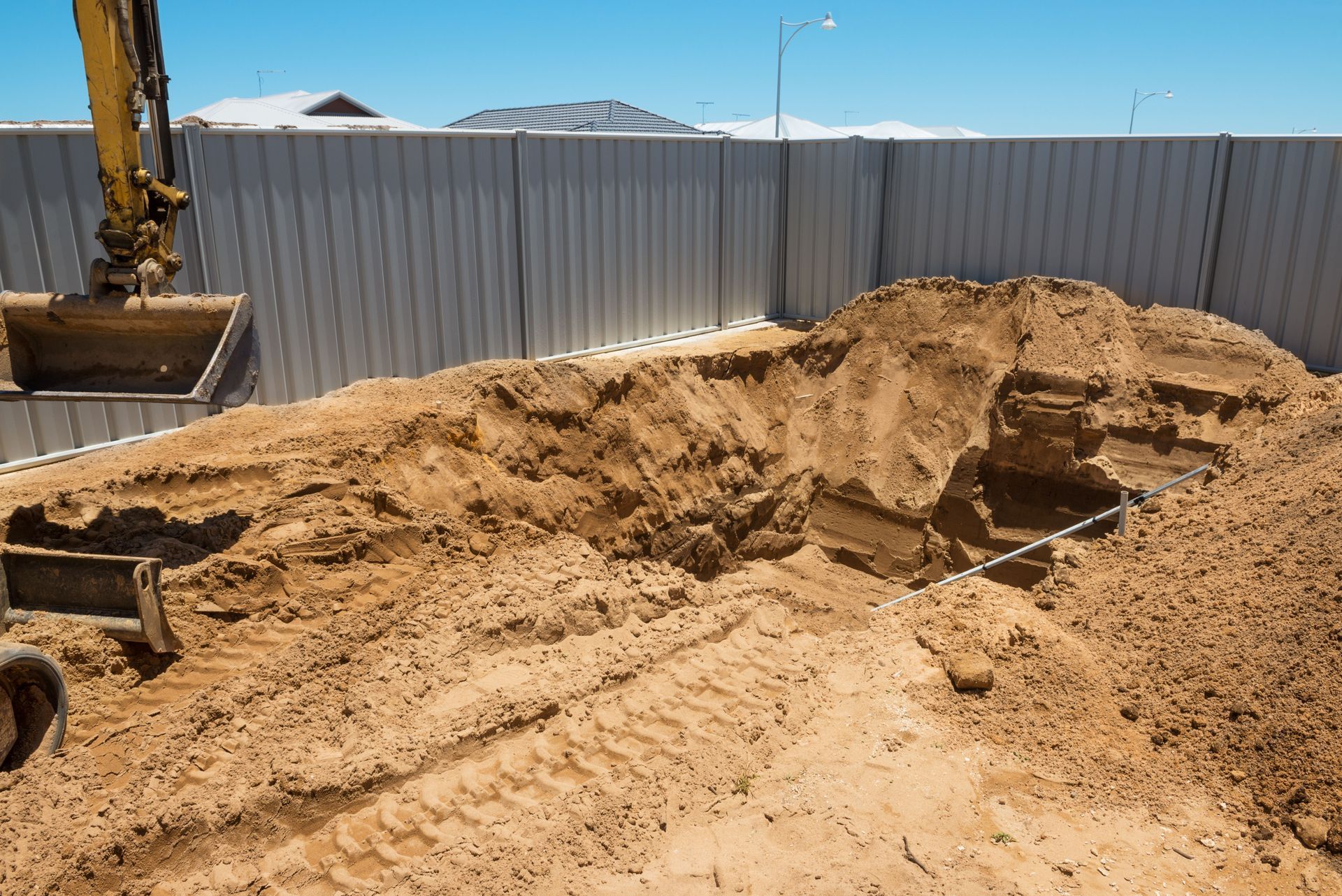Key Questions to Ask Excavating Contractors Before Starting Your Project
Before starting any construction project, one of the most critical steps is selecting the right team to handle excavation. The process involves far more than simply moving dirt—it sets the foundation for everything that follows, from site grading and drainage to utility installation and structural stability. Choosing carefully ensures your project stays on schedule, within budget, and free of unnecessary complications. One of the most effective ways to make the right choice is by asking the right questions up front. By doing so, you can assess not just skill, but also professionalism, resources, and reliability. Below are key areas to cover when evaluating excavating contractors to safeguard your project’s success.
1. Understand Their Experience and Expertise
When evaluating excavating contractors, ask about their years in business and types of projects completed. A company with decades of work under its belt is more likely to anticipate challenges and deliver solutions efficiently. Experience also means familiarity with local soil conditions, weather issues, and regional regulations that may affect your job site. Knowing they have successfully completed similar projects provides confidence in their ability to handle yours.
Ask for examples of previous work that mirrors your project in size and scope. Portfolios, case studies, or references can help you see how the contractor handled unexpected obstacles and whether they finished on time and within budget. In addition, specialized training or certifications can signal a strong commitment to professional standards. According to WorkYard, the global excavation and demolition market is projected to reach $560.01 billion in 2025, which demonstrates how critical it is for professionals to keep up with evolving techniques and safety practices in such a competitive field.
2. Verify Licenses and Insurance
No matter how skilled an excavator appears, proper licensing is non-negotiable. Excavating contractors must be able to provide proof of compliance with local, state, and sometimes federal requirements. Licensing indicates adherence to safety codes and accountability, protecting you legally if problems arise. An unlicensed operator puts your project at risk of fines, delays, or even shutdowns.
Insurance is equally important. Always request documentation before work begins. Confirm that policies are current and adequate for the scope of your project. This step ensures you aren’t held responsible for incidents during excavation. A reputable contractor will provide this information readily and without hesitation.
3. Clarify Scope of Work and Cost Details
A reliable contractor should provide a detailed, written estimate that breaks down labor, equipment, and material costs. This level of clarity helps you plan your budget and anticipate any potential overages. Avoid vague quotes that leave room for hidden fees later. A thorough estimate not only guides your decision-making but also reveals how transparent the contractor is in their business practices.
Make sure you review the proposed scope of work carefully. Each step of excavation—grading, trenching, drainage installation, or demolition—should be clearly outlined. This prevents miscommunication about responsibilities and avoids disputes later on. Additionally, discuss how budget variances will be handled if changes arise mid-project. Contractors who are upfront about adjustments and flexible in offering cost-saving alternatives often prove to be the most trustworthy partners.
4. Discuss Project Timeline and Scheduling
Timelines are foundational to construction success. Excavating contractors should provide a realistic schedule that includes start and completion dates, as well as milestones for key phases. Unrealistic promises are a red flag; reliable contractors know how to balance efficiency with accuracy and safety. Make sure their projected timeline aligns with other trades that will depend on excavation being finished on time.
Also, ask how they prepare for delays caused by weather or site conditions. Contingency planning demonstrates foresight and professionalism. Availability is another factor: confirm they will have adequate crew and equipment assigned to your job for the entire duration. Miscommunication about scheduling can cause costly ripple effects across the entire construction process.
5. Evaluate Communication and Professionalism
Successful projects hinge on clear communication. Establish a point of contact with your contractor so information flows consistently. Having one dedicated representative reduces confusion and ensures accountability throughout the project. Ask about their preferred method of updates—email, calls, or in-person meetings—and how often you can expect progress reports.
Pay attention to response times and demeanor during your early conversations. Contractors who reply promptly and carry themselves professionally are more likely to handle conflicts and challenges constructively. You can also request references or check online reviews to confirm how they interact with past clients. Professionalism in communication is just as important as technical ability—it directly impacts project flow and peace of mind.
6. Review Contract Terms Carefully
Always insist on a written contract. This document should clearly spell out every detail of the job, from scope and costs to scheduling and deliverables. A well-drafted agreement protects both parties and minimizes the risk of disputes. It also ensures you have recourse if expectations are not met. Without one, you leave yourself open to misinterpretations and financial risk.
Ask specifically about how change orders are managed. Construction projects often require adjustments, and a clear process for approvals prevents frustration. Be sure the contract also includes a termination clause so either party knows under what conditions the agreement can be ended fairly. Discussing the process for final review and approval ensures everyone agrees on when the project is considered complete.
7. Assess Equipment and Problem-Solving Capabilities
Modern excavation requires advanced tools and machinery to ensure efficiency and precision. Ask excavating contractors about the equipment they use and whether it’s maintained properly. Outdated or poorly maintained machines can lead to delays, higher costs, or safety concerns. Equipment capabilities should match the scale of your project, whether it involves site grading, trenching, or utility installation.
Equally important is the contractor’s ability to solve problems on the fly. Unforeseen conditions such as rocky soil, groundwater, or hidden utilities are common. Inquire about past situations where they had to adapt and how they resolved those challenges. Contractors who demonstrate quick thinking and resourcefulness can keep your project moving smoothly despite obstacles.
8. Explore Flexibility
No matter how well you plan, construction projects often evolve.
Excavating contractors should demonstrate flexibility in adapting to changing schedules, scope, or site conditions. Their ability to adjust without derailing progress shows resilience and client-focused service. Ask how they handle rescheduling or unexpected delays to gauge their adaptability.
Excavation sets the stage for every construction project, making your choice of contractor one of the most important decisions you’ll face. By asking the right questions, you protect yourself from avoidable setbacks while ensuring your project runs smoothly and efficiently. This industry is expanding rapidly—and that makes choosing the right partner all the more critical. Thorough vetting, clear communication, and well-defined expectations will not only help your project succeed but also provide peace of mind from start to finish. For homeowners, developers, and builders alike, selecting carefully among excavating contractors is the foundation of a successful build.
At Ramsey Excavating, we know how important these questions are because we’ve built our business around answering them with experience, reliability, and integrity. Serving the greater Ozarks region for over 47 years, we are licensed, bonded, and insured to handle projects of all sizes. Our excavation services include commercial site excavating and grading, land clearing and grubbing, storm drainage and underground utility installation, demolition and recycling, and more. We also offer free estimates to help you plan confidently. If you’re searching for excavating contractors who combine technical expertise with responsive service, reach out to Ramsey Excavating today—we’re ready to help you move your project forward.




Share On: